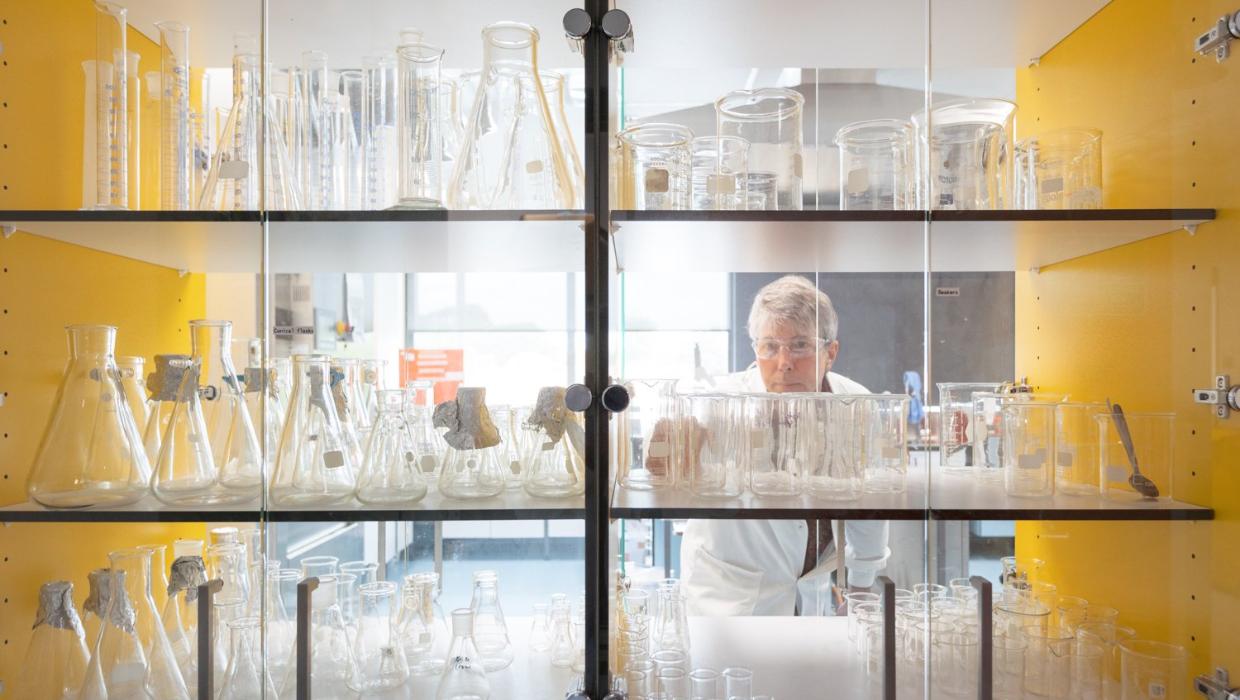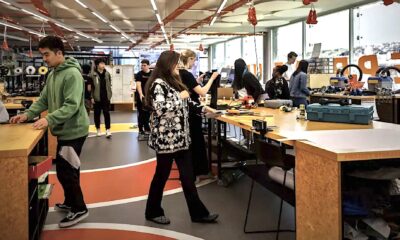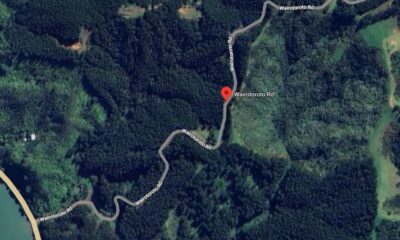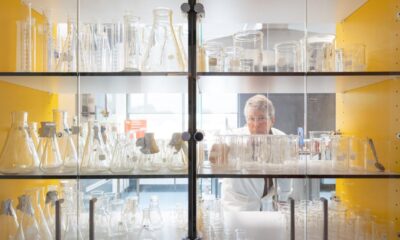Science
New Zealand Secures $20 Million to Transform Food and Biotech Sectors

The Bioeconomy Science Institute in New Zealand has successfully secured over $20 million from the Endeavour Fund to support two innovative research programmes aimed at revolutionizing the country’s food, biotechnology, and horticultural sectors. This funding is a significant boost for the collaborative organization, which includes AgResearch, Manaaki Whenua – Landcare Research, Plant & Food Research, and Scion.
Enhancing the Shelf Life of Perishable Fruits
The first programme, titled Super-Storing: Extending the Life of NZ’s Perishable Fruits, has received $10.2 million in funding. Spearheaded by cultivar development scientist Associate Professor Robert Schaffer and Dr. Rosie Schröder, this project aims to extend the storage life of perishable fruits, such as summer fruits and berries, to match that of kiwifruit.
Utilizing advanced gene technologies, the initiative seeks to enhance the export potential of these crops by enabling them to be stored and shipped via sea to markets in Asia and Europe. Currently, New Zealand’s fresh fruit exports generate approximately $3.5 billion annually, primarily from kiwifruit and apples. This research is positioned to diversify the horticultural sector, aligning with the Government’s goal of increasing export value from $7 billion to $12 billion per year.
“This work will directly benefit growers, extend harvest windows, and build resilience against extreme weather,” Schaffer stated. “It’s about unlocking the full potential of New Zealand’s horticultural diversity.”
Transforming Pine Waste into High-Value Proteins
The second research initiative, Turning Pine Waste into Premium Proteins, is a five-year project with a budget of $10.4 million. Led by Dr. David Hooks and Dr. Scott Knowles, this initiative aims to convert pine forestry residues into high-value proteins using Precision Fermentation (PF) techniques. Previously discarded or burned softwood residues will be transformed into fermentation feedstocks through novel chemoenzymatic methods.
The resulting feedstocks will be utilized to cultivate engineered yeast strains capable of producing specialty proteins, such as osteopontin and casozepine, which replicate the nutritional benefits of traditional animal-derived ingredients. This programme is integral to New Zealand’s transition towards a low-emission circular bioeconomy, addressing challenges related to feedstock availability and regulatory frameworks surrounding gene technologies.
“This is more than a research programme,” Dr. Hooks explained. “It’s a blueprint for how New Zealand can lead in the next generation of food and biotech innovation. This is about creating value from what we already have. New Zealand has abundant bioresources and world-class science. Precision Fermentation allows us to connect the two.”
Dr. Knowles emphasized the significance of this initiative, stating, “By converting forestry residues into feedstocks, we’re unlocking a new pathway for sustainable protein production—one that aligns with global efforts to build climate-resilient food systems.”
The researchers anticipate several innovations from this programme, including novel enzymes for converting lignocellulosic biomass into fermentable sugars and yeast engineering to enhance protein expression. The project aims to produce single-cell protein as a co-product for animal feed and implement digital twin modelling to simulate and optimize PF processes.
A New Era for the Bioeconomy Science Institute
The establishment of the Bioeconomy Science Institute is part of a broader government initiative to enhance the scientific impact of New Zealand’s research institutions. Earlier this year, the government announced plans to merge seven Crown Research Institutes into four new Public Research Organizations, one of which focuses specifically on the bioeconomy. This restructuring aims to unlock the potential of scientific research to benefit New Zealand and its economy.
During a recent visit to the Lincoln campus of the Bioeconomy Science Institute, Hon Shane Reti, Minister of Science, Innovation and Technology, unveiled the organization’s new visual identity. “This is an exciting step in sharing our new organization with the outside world,” said Transition Chief Executive Mark Piper. “As we start our journey as the Bioeconomy Science Institute, it’s great to be able to share this new visual identity that speaks to the organization we are building, for the benefit of Aotearoa New Zealand and the world.”
Minister Reti also announced an additional $6.5 million in industry funding aimed at developing methods to reduce methane emissions from grazing livestock. He witnessed the signing of a new licensing agreement with Nelson-based Seaweave to commercialize aquaculture monitoring technology, further emphasizing the government’s commitment to advancing New Zealand’s bioeconomy.
-

 Sports2 months ago
Sports2 months agoNetball New Zealand Stands Down Dame Noeline Taurua for Series
-

 Entertainment2 months ago
Entertainment2 months agoTributes Pour In for Lachlan Rofe, Reality Star, Dead at 47
-

 Entertainment4 weeks ago
Entertainment4 weeks agoNew ‘Maverick’ Chaser Joins Beat the Chasers Season Finale
-

 Sports2 months ago
Sports2 months agoSilver Ferns Legend Laura Langman Criticizes Team’s Attitude
-

 Sports3 days ago
Sports3 days agoEli Katoa Rushed to Hospital After Sideline Incident During Match
-

 Politics1 month ago
Politics1 month agoNetball NZ Calls for Respect Amid Dame Taurua’s Standoff
-

 Entertainment2 months ago
Entertainment2 months agoKhloe Kardashian Embraces Innovative Stem Cell Therapy in Mexico
-

 World3 months ago
World3 months agoPolice Arrest Multiple Individuals During Funeral for Zain Taikato-Fox
-

 Sports3 months ago
Sports3 months agoGaël Monfils Set to Defend ASB Classic Title in January 2026
-

 Entertainment1 month ago
Entertainment1 month agoTyson Fury’s Daughter Venezuela Gets Engaged at Birthday Bash
-

 Sports1 month ago
Sports1 month agoHeather McMahan Steps Down as Ryder Cup Host After Controversy
-

 World2 weeks ago
World2 weeks agoSevere Winds Hit New Zealand, Over 100 Flights Canceled


















